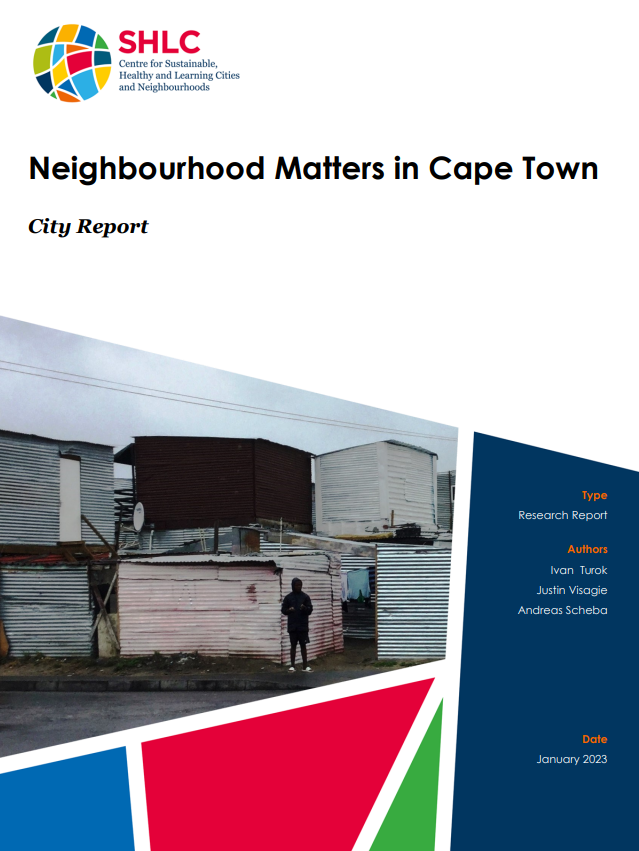City Report - Neighbourhood Matters in Cape Town

01 January 2023
Centre for Sustainable, Healthy and Learning Cities and Neighbourhoods
English
Research report
Africa
Cape Town is a deeply polarised and segregated city, with graphic contrasts in living standards and subjective well-being between disparate neighbourhoods. People inhabit distinctive worlds that expose them to entirely different opportunities and hazards affecting their health, education, economic prospects, and general satisfaction with life. Public services moderate some of these inequalities, but their reach and quality are also very uneven across the city. Some communities lack basic water and sanitation services, while many affluent residents opt out of public services through private education, healthcare, and security.
The COVID-19 pandemic amplified pre-existing divisions and made life much harder for poor communities by retrenching their jobs and swelling their debt burdens. Higher-income groups were better equipped to cope with social distancing measures, economic shutdowns, and remote working. The priorities of affluent communities are local peace and tranquility, rather than altruism and solidarity towards poorer neighbourhoods. Individualistic attitudes run counter to opening up local opportunities for outsiders and engaging in collaborative activities to help improve conditions in other communities. The growing spatial divides in Cape Town raise uncomfortable questions about whether this trajectory can be sustained into the future without disruptive social consequences.
Access the City Report - Neighbourhood Matters in Cape Town.
For another research report in this series please see The City Report - Neighbourhood Characteristics and Inequality in the City of Johannesburg.
Abstract based directly on source.


Comments